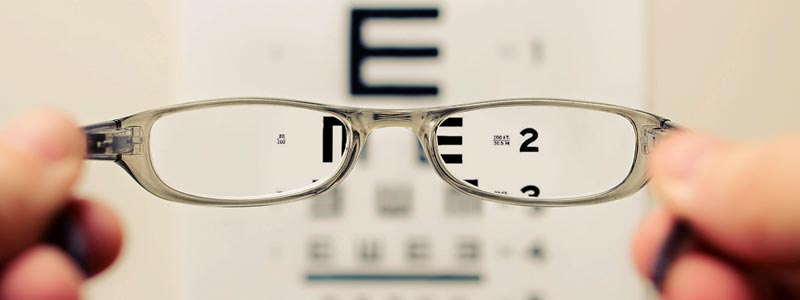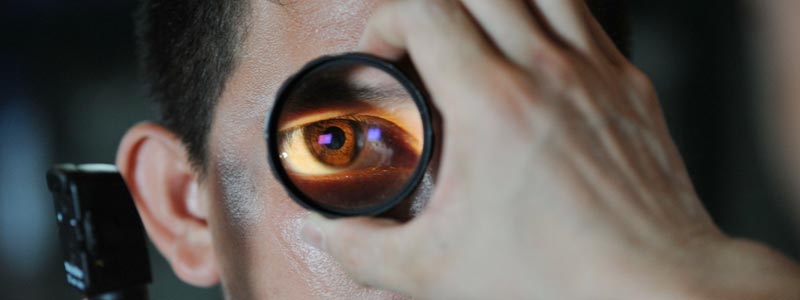How LASIK Negligence Could Lead to Medical Malpractice
LASIK (Laser-Assisted In Situ Keratomileusis) eye surgery allows people who deal with vision impairment to experience permanent correction without having to wear contact lenses or glasses. Though the procedure is practiced in thousands of eye care centers nationwide every year, the surgery involves several health risks. While many people enjoy permanently corrected vision because of […]

May 4, 2018

LASIK (Laser-Assisted In Situ Keratomileusis) eye surgery allows people who deal with vision impairment to experience permanent correction without having to wear contact lenses or glasses.
Though the procedure is practiced in thousands of eye care centers nationwide every year, the surgery involves several health risks. While many people enjoy permanently corrected vision because of their LASIK surgery, others have been seriously injured.
Injuries aren’t always due to unavoidable complications. Some patients underwent the procedure despite having pre-existing conditions that would make them poor candidates for the surgery. If such patients underwent the procedure based on the recommendation of their doctor, it could be a form of medical malpractice.
The LASIK Solution

LASIK is a surgical procedure that can correct near-sightedness and far-sightedness in certain individuals. Without getting too technical, the procedure involves using special equipment to make incisions in each affected eye and re-shape the cornea (the lens that focuses light into your eye) to compensate for current vision impairment.
Rather than using a knife to make the cuts and re-shape the cornea, LASIK uses lasers; they provide greater accuracy and finer controls than any other kind of device. Though it may sound reckless, the procedure is usually simple, fast, and mild, which is why many people don’t need any recovery treatments except eye drops.
However, not everyone’s eyes are the same. People with certain characteristics should not undergo LASIK surgery because the risks of eye damage are too great.
Risks of Laser Eye Surgery

Though there’s no scalpel involved, it’s important to remember that LASIK is a surgical procedure. Like any surgery, doctors are required to provide the risks associated with the procedure to patients before they accept and undergo it. In the medical world, this is known as informed consent.
One of the most common complications of LASIK is issues surrounding the part of the cornea that is removed during the procedure in order to re-shape it. Called the corneal flap, it can trap particles that cause permanent damage to the rest of the eye if not treated at the first sign. The flap can also be replaced improperly, leading to other symptoms and possible vision impairment later on.
When Surgical Mistakes Become Malpractice

Not every surgery that causes unwelcome side effects is automatically a case of medical malpractice. Unfortunately, it can often simply be a part of taking the risk of undergoing a procedure. However, LASIK surgeries generate malpractice cases differently than many other procedures due to its wide appeal.
Because LASIK is a fairly low-risk surgery that’s optional to a large population (considering that more than 60 percent of all Americans wear glasses), eye doctors have reason to suggest this procedure often. However, if they fail to fully inform patients of the risks associated with LASIK, patients cannot provide informed consent. If they then suffer adverse side effects they couldn’t have known about, their doctor could be guilty of negligent behavior, which leads to a medical malpractice claim.
Another scenario would involve doctors prescribing LASIK to patients they know aren’t good candidates for the surgery. Certain conditions, such as an irregularly shaped cornea, increase the risk of damage to an unreasonable degree, which means those patients should be thoroughly informed of their risks.
Again, if they are not informed of these risks or their unique condition, their doctor may be guilty of negligence.
Filing a LASIK Medical Malpractice Claim
The basic components of any medical malpractice claim are establishing doctor-patient relationship, proving negligence, and documenting the resulting harm. As these cases are notoriously difficult to win, it’s important to consult with an experienced Indiana medical malpractice attorney who will help you decide if you have a valid case and if it would be beneficial to pursue it.
If you’ve been hurt because of negligence surrounding a seemingly routine LASIK procedure, contact Hensley Legal Group. Our medical malpractice lawyers are well-versed in Indiana’s injury and medical insurance laws and can help you file and communicate your case. Call or contact us online today to start a conversation with us, free of charge.